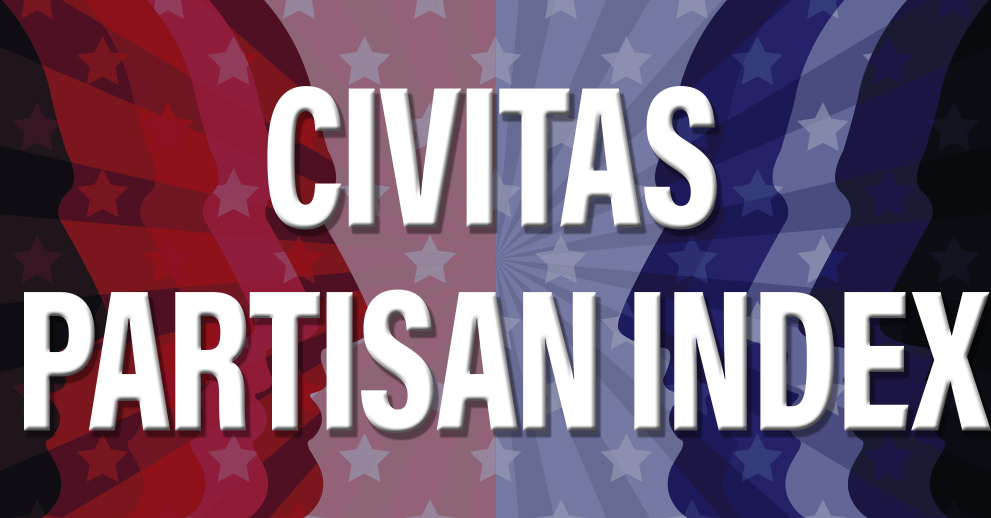
The Civitas Partisan Index (CPI) began as a project of the Civitas Institute to provide accurate analysis of the partisan leanings of state legislative districts. It is now hosted by the John Locke Foundation.
We model the CPI after the Cook Political Report’s Partisan Voting Index. It is a measure of the base partisan leanings of a North Carolina state legislative district compared to the state as a whole. For each district, the CPI score lists the party (identified by initials, D or R) the district tends to favor, followed by a number indicating the relative lean of the district toward that party. For example, a district that tends to vote about 7 percent more Democratic than the state average would have a CPI score of D+7.
Our current methodology takes a rolling average of the ten Council of State races from the latest presidential election and statewide judicial races from the latest midterm election.
The 2024 CPI took precinct-level results of the ten 2020 Council of State races and the 2022 statewide judicial races using data from the North Carolina State Board of Elections (NCSBE) precinct sort files. The Republican votes of sixteen races were added together in each state legislative district and divided by the total two-party votes for those sixteen races to get a Republican percentage in each district. That percentage is then subtracted from the Republican statewide average for those sixteen races (51.36%) to find the CPI rating for each district.
There are two ways the CPI may differ from other indexes. First, other indexes usually base their scores on a composite of several races (president or United States senator for example). Since we use many “down ballot” statewide races rather than a handful of state and federal elections, our index is a more reliable indicator of the baseline tendencies of voters.
Second, other indexes might not base their rating on a comparison to the average statewide vote but instead, compare the two-party vote totals when rating a district.
Those differences in methodology can produce what appear to be very different results. So, for example, the CPI may score a district R+10 (61.58% – 51.36% = 10.22%) while someone using the Dave’s Redistricting app would score it R+22 (60.07% – 37.98% = 22.09%). Both ratings are legitimate and indicate a safe Republican district.
Civitas Partisan Indexes and Reliability Reviews in Recent Elections
2024 Election CPI: Introducing the 2024 Civitas Partisan Index
2022 Election CPI: What Are the Partisan Leanings of Court-Ordered Legislative Districts?
2022 Reliability Review: The Civitas Partisan Index Proved Highly Reliable in 2022
2020 Election CPI: Introducing the 2020 Civitas Partisan Index
2020 Reliability Review: The Civitas Partisan Index was highly accurate in 2020